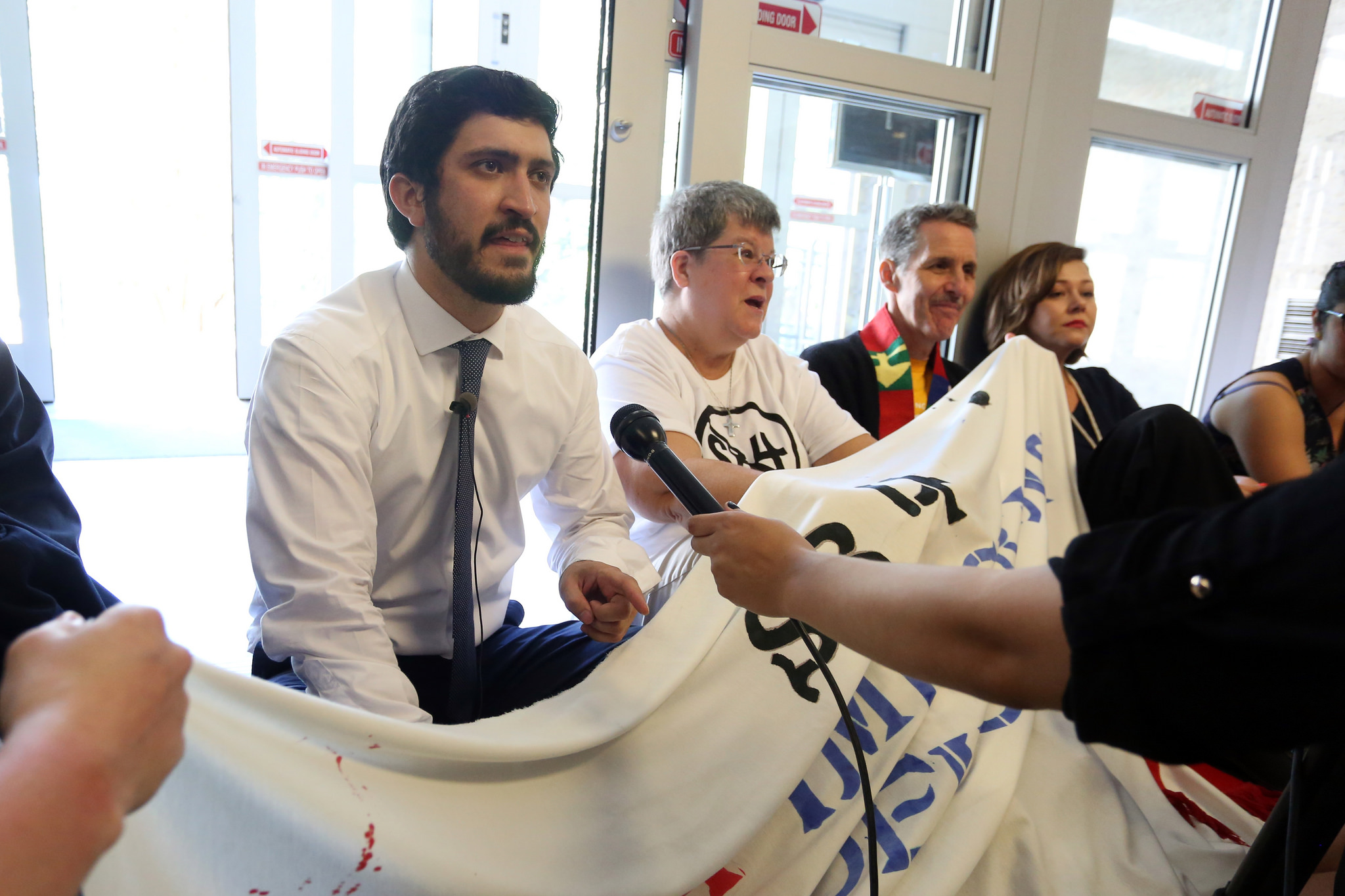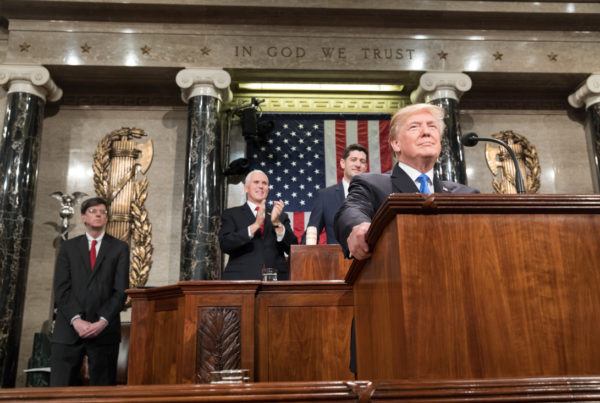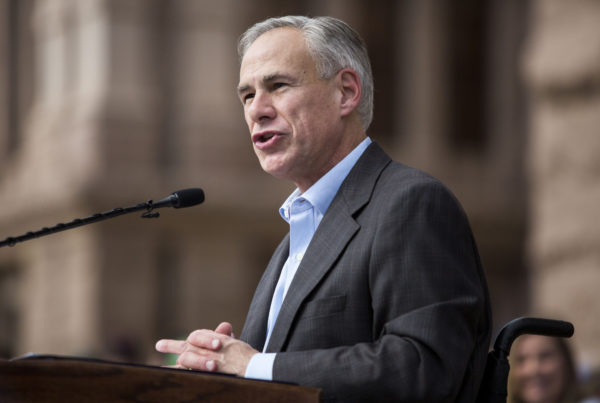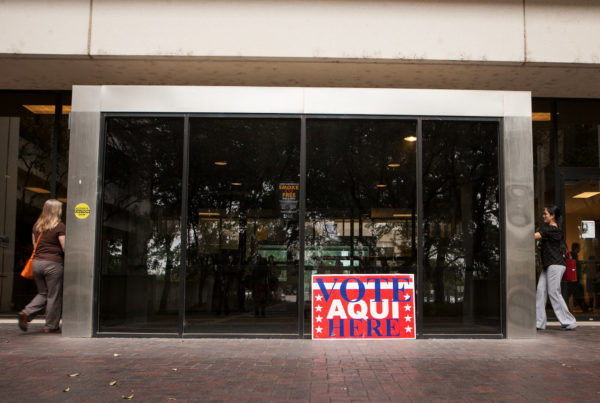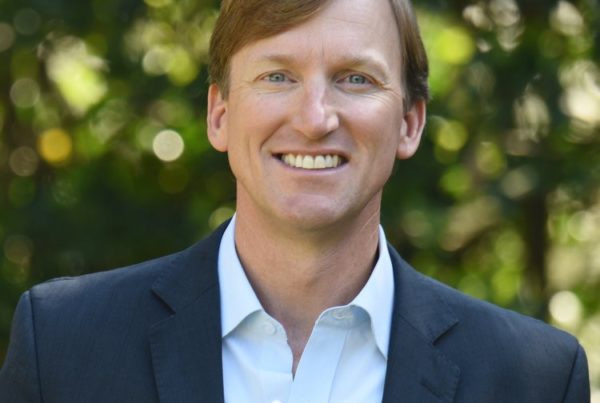If the latest catalyst for states going their own way was the Paris Climate Agreement, in Texas it was SB4. That’s the law banning sanctuary cities – also known as “show-me-your-papers.”
While demonstrations erupted in several parts of the state and opposition to the bill came from many sectors of the population, they didn’t dissuade Texas Gov. Greg Abbott from signing SB4 into law last May. But then, local governments sprang into action and decided to fight the new law. Tiny El Cenizo was the first city to file a lawsuit. Then came Austin.
Austin City Councilmember Greg Casar knew Dallas Councilmember Philip Kingston also opposed SB4 and gave him a call.
“I can’t think of anybody else that more consistently is confronting state-elected officials than [Kingston] over there,” Casar says.
Kingston says he’s always looking for what he thinks is a good fight – it’s in his DNA.
“There’s a trait in running backs that they call ‘looking for contact’ and it’s not a healthy trait,” he says. “But unfortunately I have it.”
In a matter of days, a conglomerate of Texas cities was “looking for contact” too. Lawsuits piled up against the state.
San Antonio Councilmember Rey Saldaña says the collaboration with other local officials from across Texas taught him that he could learn from other cities – and that others could learn from him. For instance, during the last legislative session even the Governor’s popular proposal to increase Pre-K funding went nowhere, in part because discussions got political.
“You can’t focus on long-term sustainable solutions if you’re thinking within two-year, four-year cycles,” he says. “Which is why the City of San Antonio has decided to step-up where the state hasn’t in asking the voters to fund universal Pre-K program that we’ve had since 2012.”
Now San Antonio has the blueprints for funding universal pre-K and it’s open to sharing those with any community that wants to follow in its footsteps. Saldaña says when policies like this move up – and not when they trickle down – the government is more “of the people and by the people.”
“If you want a true voice of ‘what real America sounds like’ you don’t have to go further than city halls within these towns to identify what’s really on people’s minds,” Saldaña says.
That’s why, for him, the discussions in the last state legislative session about bathroom bills and fetal tissue simply seemed disconnected from the needs of everyday Texans. In San Antonio, he says, most people seem more focused on infrastructure, like roads.
“You know, for the first few years of my time as council member, I had forgotten what my first name was,” Saldaña says. “I thought my name was ‘Sidewalks’ and ‘Speed bumps’ because when I was walking my dog everybody would yell ‘Sidewalks!’ ‘Speedbumps!’”
In Austin right now, police are operating without a contract. That could potentially affect large numbers of people because even the behavior of officers is regulated by their contract. One issue that held up negotiations? The Austin police department is governed by a 30-year-old state law known as chapter 143 and not by city law.
“Because of that state law, we can’t suspend officers, for example, for inappropriately using force if we find out 6 months later,” Austin Councilmember Greg Casar says.
San Antonio is not bound by that state law and neither is Dallas. So Casar and other local officials are trying to learn from those cities.
Looking at those examples you may be thinking that Texas cities are looking for ways to circumvent state law and you would be right. Cities are not even subtle about it. The fight between state and local government goes both ways and it’s fierce.
But Natalie Delgadillo with Governing magazine says though it may seem to be happening with renewed vigor, it’s a fight that’s as old as government itself.
“At the end of the day,” Delgadillo says, “local governments want to be able to govern themselves so when the branch of government above you – whether state government or federal government – sort of tries to meddle in your affairs, local and state governments are not going to take kindly to that.”
No, they’re not. They’re going to fight.


